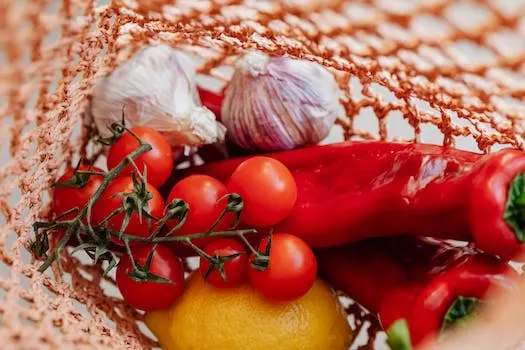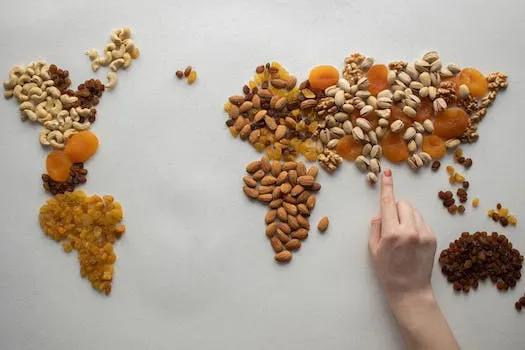
How to Avoid Food Waste in Your Household
Food waste is a global issue with far-reaching consequences. From environmental costs such as land use, energy, water and natural surroundings to financial costs for consumers and ethical issues of hunger, food waste has become an increasingly pressing problem. This article will explore the causes of food waste in households and how to reduce it.
The primary cause of food waste in households is due to the complex demands of everyday life. With nutrition, affordability, convenience and taste all needing to be balanced, it can be difficult for households to manage their resources effectively which leads to surplus food ending up in the bin. Poor infrastructure such as bumpy roads can also contribute towards this problem by damaging produce before it reaches its destination.
In response to this issue there are several initiatives that have been put into place in order to redistribute surplus prepared food in San Francisco. These initiatives use a particular value choreography which helps ensure that no edible items are wasted while still providing people with access to nutritious meals at an affordable price point.
Another way that we can reduce our household’s contribution towards global food waste is through aquaculture (aquatic farming). Although wild capture fisheries still dominate production when it comes fish, seafood and algae products, aquaculture has seen more than a tenfold increase since 1950 making it an important part of reducing our reliance on wild capture fisheries which often lead to overfishing or unsustainable practices being used due to high demand for these products.
By understanding the causes behind household food waste and taking steps towards reducing our contribution we can help protect natural resources while also saving money on groceries as well as helping those who don’t have access or means for nutritious meals by redistributing surplus prepared foods through initiatives like those found in San Francisco or by relying more heavily on aquaculture instead of wild capture fisheries where possible.
Why Do We Waste Food?
food waste is a major issue in the United States, with Americans throwing away an estimated $161 billion worth of food each year. This waste occurs for a variety of reasons, such as buying too much food or failing to use leftovers before they spoil. Poor storage habits, like leaving food out of the refrigerator, can also cause it to go bad prematurely. Additionally, we may discard food because of its packaging or because it doesn’t look attractive.
Americans are often impulsive when it comes to their food purchases and overestimate how much they need which leads to overbuying and ultimately wasting more than necessary. The production of food is resource-intensive and this leads to environmental impacts due to the amount that is lost or wasted every day. The USDA defines this as edible items going unconsumed for many reasons such as grocery stores throwing out fresh produce that isn't up to their standards even though it's still edible. To avoid these issues and create a sustainable system that provides everyone with access to nutritious foods without damaging our environment we must reduce our current levels of wastefulness in order for us all benefit from a healthier future.
Plan Ahead
Planning ahead is one of the most effective ways to reduce food waste and save on your grocery bills. Taking the time to plan meals and create a shopping list can help you avoid buying more food than you need. Additionally, planning meals helps ensure that leftovers are used up and stored properly. Reducing food waste is an important climate solution, as making changes in your kitchen and when shopping can significantly reduce the amount of food wasted each year.
Before heading out for groceries, take a look in your refrigerator, freezer, and pantry first to make sure you don't buy something that you already have. Making a list each week of what needs to be used up will also help prevent unnecessary purchases that could lead to wasted food later on. Meal Planning is key when it comes to reducing food waste in your own home; by taking the time to plan ahead with a shopping list, you can make sure that only what's necessary is purchased while still having enough variety for tasty meals throughout the week.
Meal prepping also plays an important role in reducing food waste; by planning out meals ahead of time with only what's needed for those recipes, not only will there be less unused ingredients but also fewer calories consumed overall since portion sizes are easier to control when everything has been prepped beforehand. planning ahead not only helps decrease the amount of food wasted but also saves money as well as time spent cooking during busy weeks!
Shop Smart
Shopping smart is an important part of reducing food waste in your household. When you go to the store, try to buy only what you need and be mindful of expiration dates. Consider buying in bulk if it will help you save money and reduce food waste, but remember that this only works if you can consume the food before it spoils. Additionally, make a list of items that you need to buy and stick to it so that impulse buying doesn't lead to wasted food. Planning meals ahead of time also helps ensure that all ingredients are used up before they expire. Finally, keep track of what has been bought and examine your fridge before grocery shopping so that nothing goes bad while sitting in the back corner! Following these tips will help reduce your household's food waste significantly!
Store Properly
Proper food storage is essential to reducing food waste in the household. To ensure that food stays fresh and safe to consume, it is important to Pay attention to expiration dates and store items at the correct temperature. Perishable and semi-perishable foods should be used promptly or stored or preserved for later use. Fruits and vegetables should be stored properly for maximum freshness, while milk, poultry, bread, eggs, nuts and other foods should be kept on lower shelves or drawers which are the coldest parts of a refrigerator. Additionally, airtight containers can help keep food fresh for longer periods of time. Freezing is also an option for preserving certain foods; however it is important to note that every food product has its own maximum shelf-life when frozen as well as when stored at room temperature or refrigerated. By following these tips on proper storage techniques you can make sure your groceries don't go bad before you have a chance to enjoy them!
Donate or Compost
Donating or composting food is an important way to reduce food waste in your household. Nutritious, safe, and untouched food can be donated to local food banks to help those in need. Composting is another great way to put food waste to use and improve soil quality. Compost any leftovers that have gone bad or any other food scraps you may have. This will reduce the amount of waste that goes into landfills and help recycle the nutrients from the food into rich soil for your garden. Additionally, composting helps reduce your impact on climate change as it prevents methane gas from being released into the atmosphere when trapped in a landfill. Consider donating excess safe, edible foods you may have to local organizations such as Durango Food Bank or composting them instead of throwing them away! Reducing our collective impact on climate change and promoting sustainable local foods are important steps we can take towards avoiding unnecessary waste in our households.
Conclusion
In conclusion, food waste is a serious issue that has a negative impact on both the environment and our wallets. To reduce food waste in your home, plan ahead when shopping, store food properly, and donate or compost any excess. By following these tips you can help to reduce food waste and save money. A recent study outlines the impact of wasted food on the environment and economy as well as provides ideas for everyday consumers to help prevent it. Wholesome food that is currently wasted could be used to feed families in need while reducing resources needed for production of more goods. Additionally, throwing away edible foods wastes money and sends it to landfills where it rots and produces methane gas which contributes significantly to climate change. Taking action against this problem by following simple steps can have a positive effect on both our wallets and the planet we live in.










